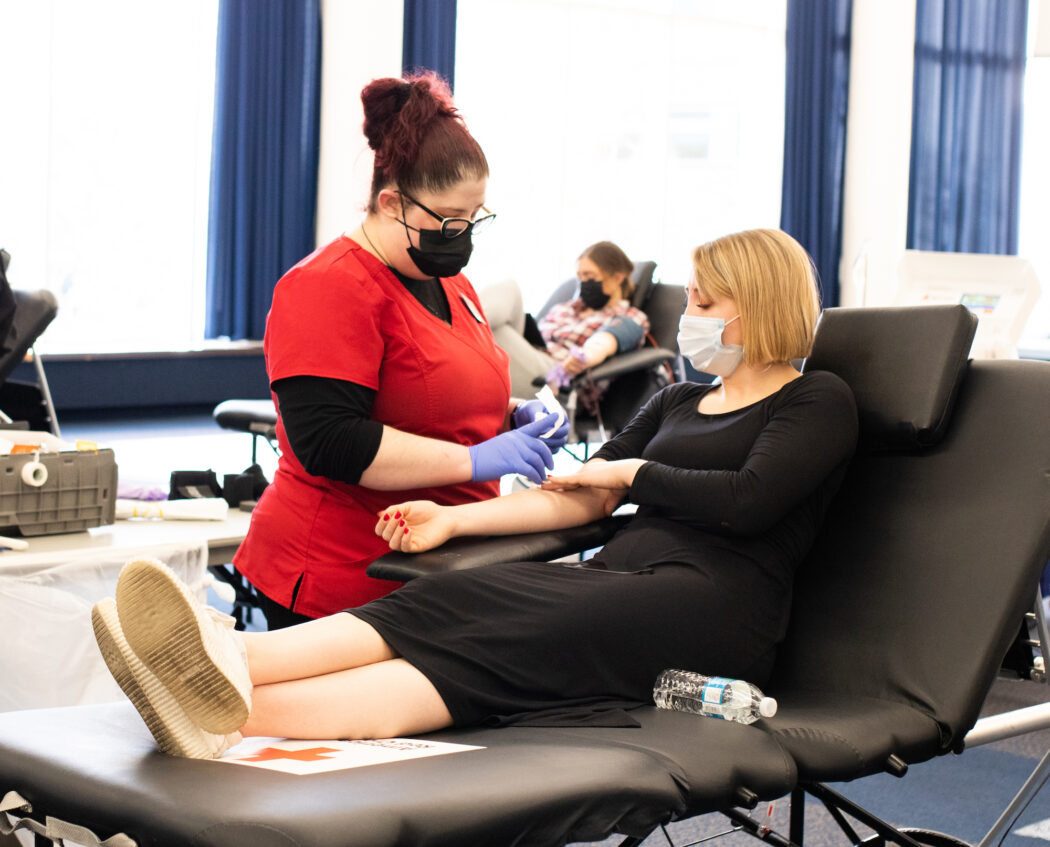The impacts of blood drives during national blood shortage
Utah State University held its first blood drive of spring semester in the Taggart Student Center on Jan. 11 — as the national blood shortage continues on.
According to American Red Cross employee Brandy Wood, it has been a decade since ARC has been this short of blood donations.
“In hospitals right now they are having to make the hard decision of who gets the blood and who doesn’t,” Wood said.
According to Wood, most people don’t realize how necessary blood drives are.
“One in every three people are going to be impacted by it in some way,” Wood said. “Whether it’s a family member, a friend or yourself. And when it’s not there and you need it — that is the worst thing.”
For Wood — who has been an American Red Cross employee for more than 16 years — both her nephew and a close friend have been saved by blood donations.
“If it wasn’t there, they wouldn’t be here today,” Wood said.
Wood said she continues to work for ARC because of her connection to and passion for blood donation.
The coronavirus pandemic affected ARC blood drives in drastic ways — largely because The Church of Jesus Christ of Latter-day Saints stopped all activities in their church buildings. In Utah, ARC depends on the church to host blood drives.
Brandi Mickey — an employee of ARC who has worked at the blood drive on Jan. 11 — said she saw an immediate drop in blood donations once the Latter-day Saint churches shut down.
“It got to the point where we went from being fully supplied to not having enough for the people who were dying in the hospital,” Mickey said. “All in a week.”
This is why hosting these drives frequently is important, according to Mickey. The full ARC blood supply is not for a year or month, it is only several days.
Once ARC reached out to church headquarters, they were allowed to continue doing blood drives in their buildings — even when no other activities were allowed in the buildings. According to Mickey, this shows just how important donations are.
“If people don’t donate, there is no backup option,” Mickey said. “We don’t have a synthetic option. There is no fake blood to use. Donation is the only option as of now.”
Mickey finds hosting drives at high schools and colleges is a good way to get people donating at a younger age.
“They can donate for the rest of their lives,” Mickey said. “The younger they start, and the younger that people find out about donating, the better off we are.”
Mickey encourages everyone to donate who is able.
“I think people are scared to donate because, obviously, the needle,” Mickey said. “But once you do it, you realize it is not that big of a deal.”
Mickey thinks students who have never donated blood should try it because it is a very important part of our society.
“It sounds like a tagline, but literally without donations people would die,” Mickey said.

